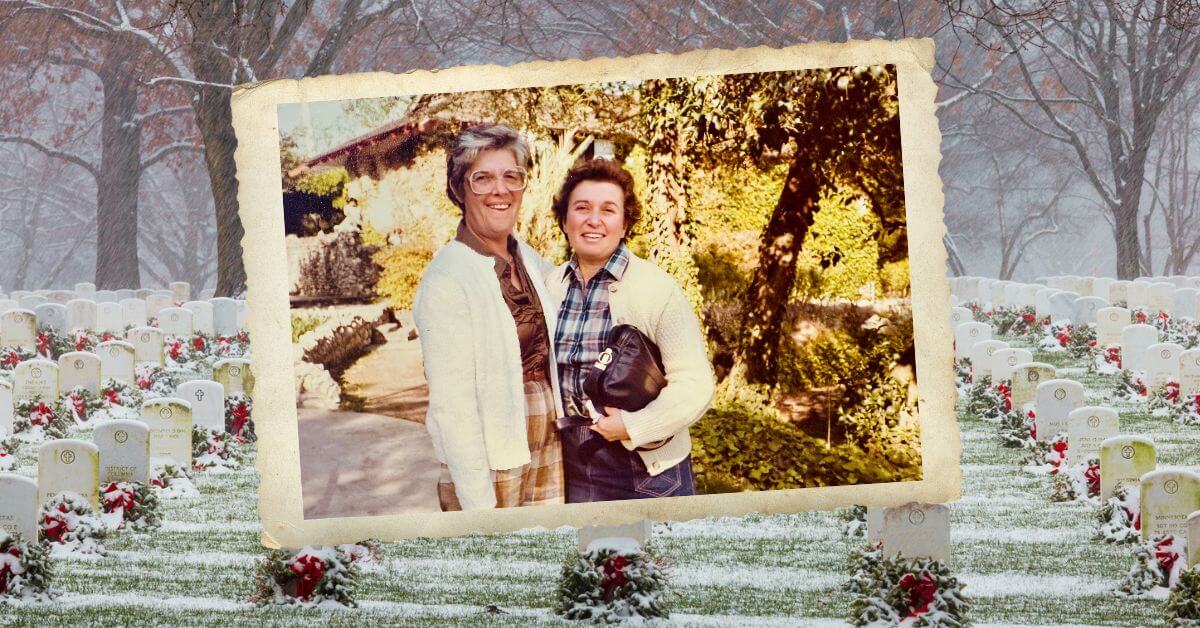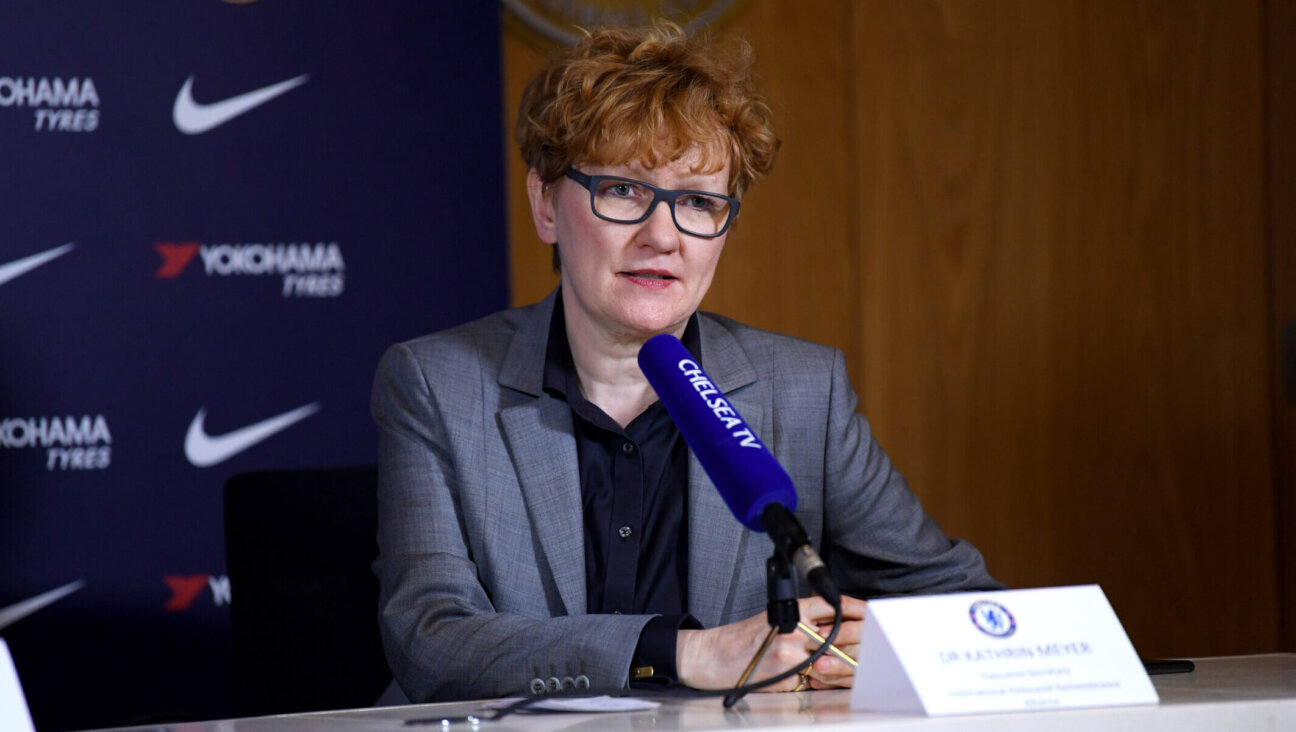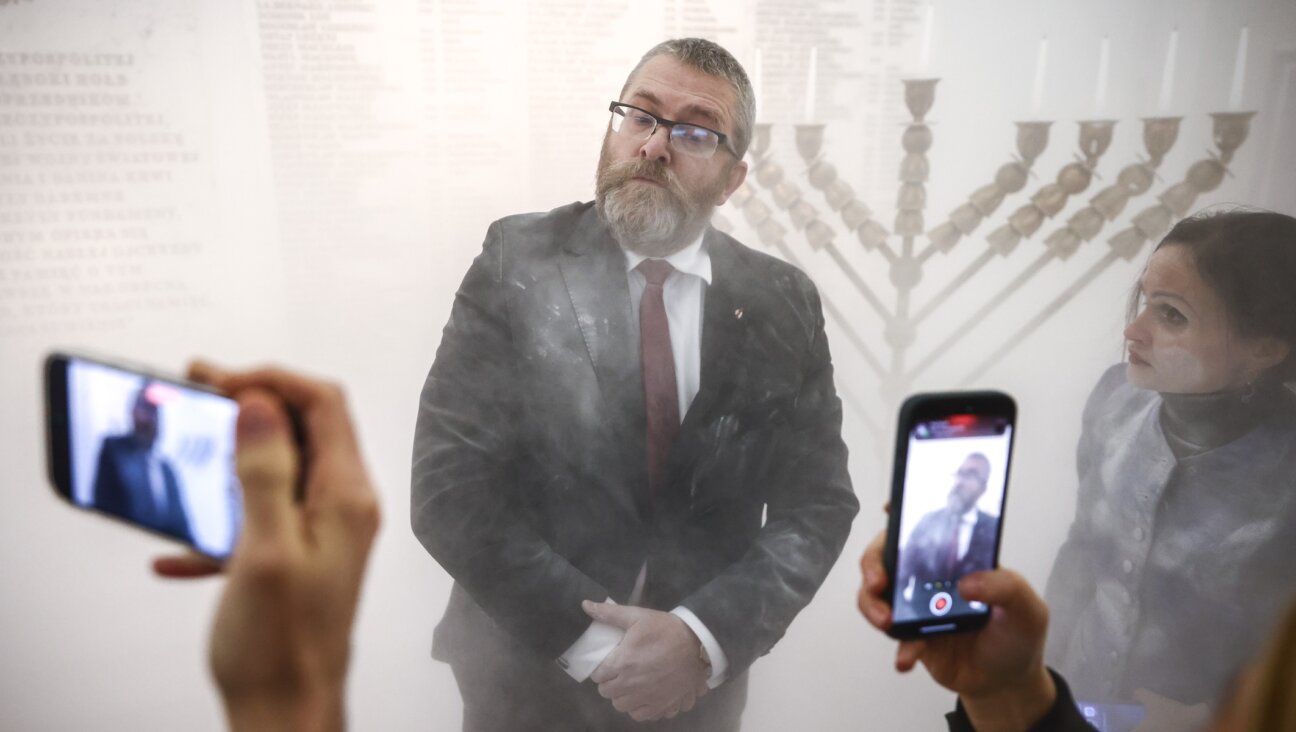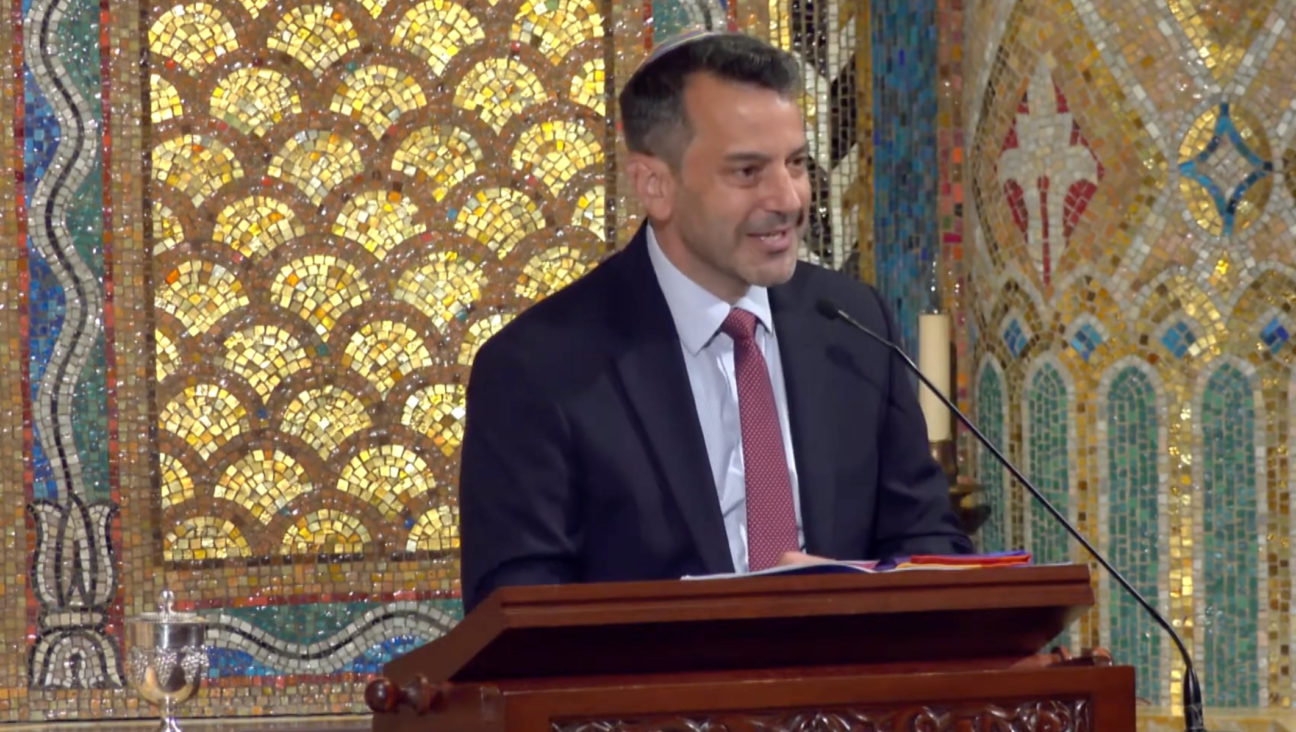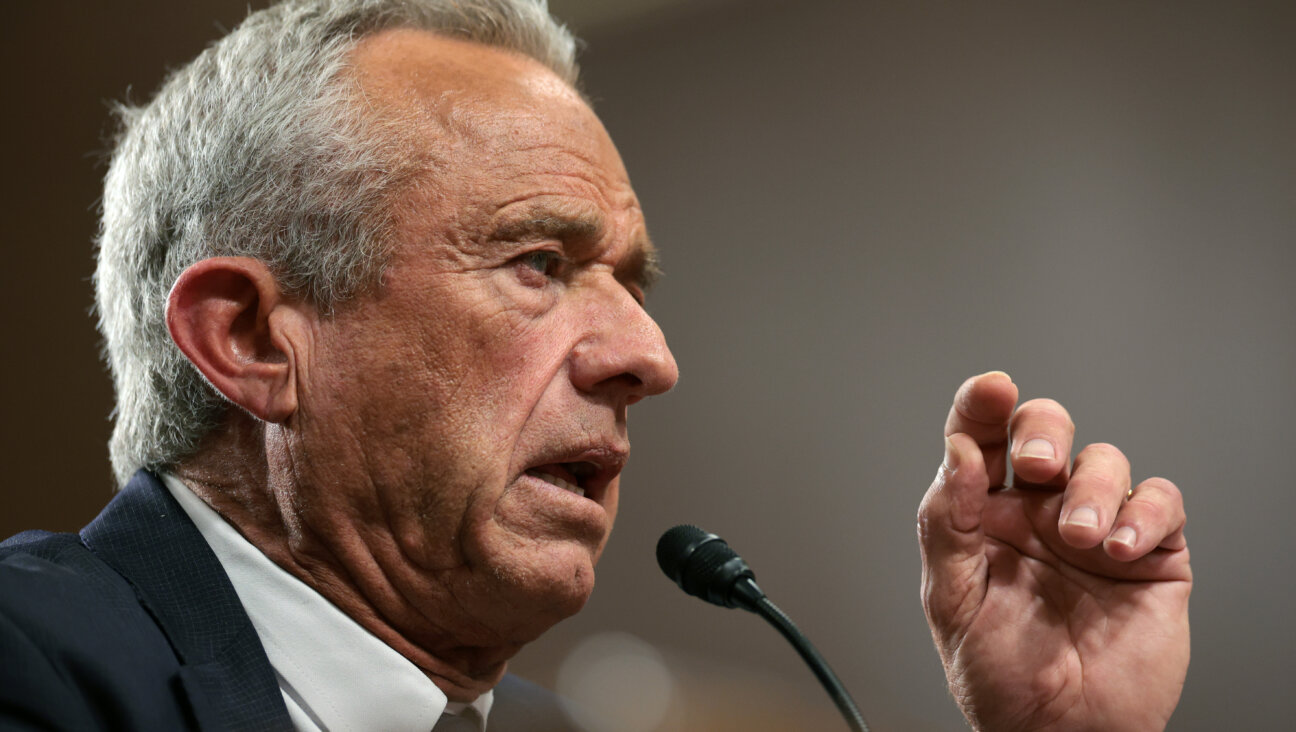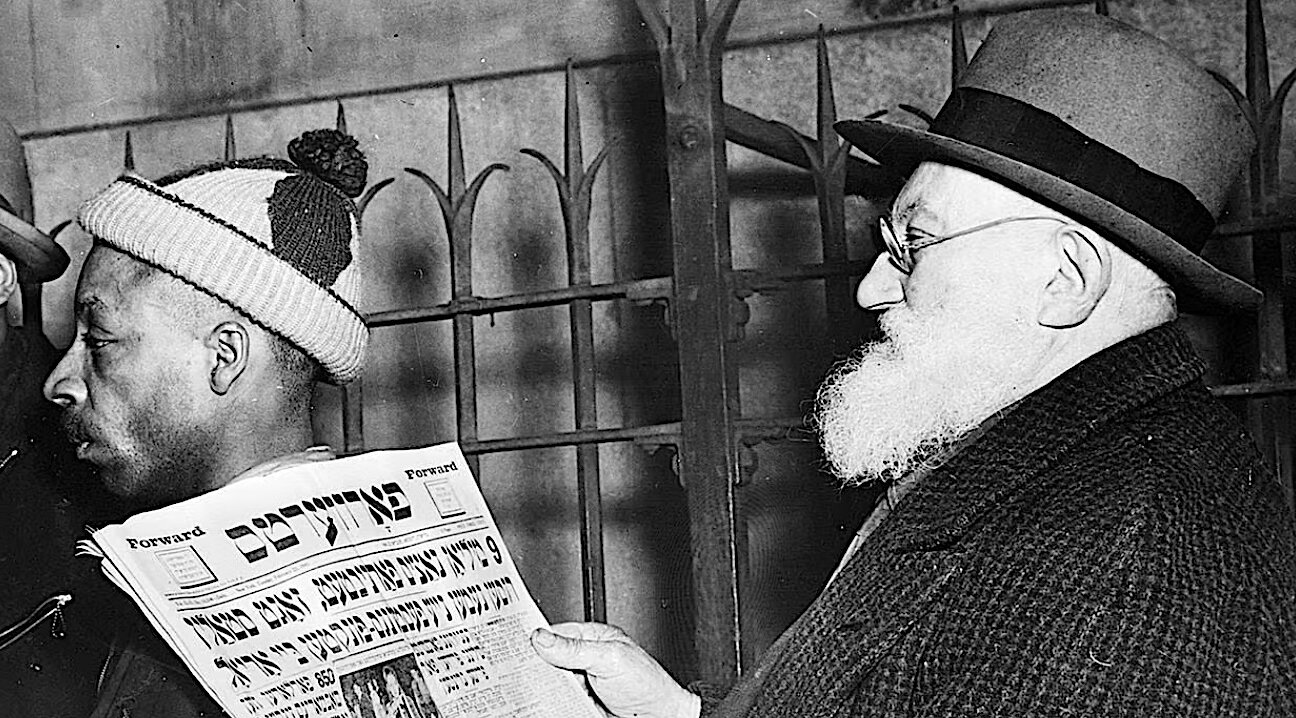Sharon Backs Orthodox in Court Case
The thorny question of “Who is a Jew?” has resurfaced in an Israeli Supreme Court case that could trigger a new religious crisis between Israel and American Jewry.
At issue is the interpretation of Israel’s Law of Return as it relates to Reform and Conservative conversions.
Israel’s Supreme Court is slated to decide a case that could force the government to grant Reform and Conservative conversions done in Israel the same status as those conducted under state-sponsored Orthodox supervision.
The high court is considering a petition by 15 people living in Israel who were converted by Conservative or Reform rabbis after attending conversion classes sponsored by the two non-Orthodox streams. The petitioners — foreign workers and tourists who have lived in Israel for years — claim they should be granted Israeli citizenship under the state’s Law of Return, as they would if they had converted under Reform or Conservative auspices outside of Israel.
But last week, Israel’s Justice Ministry told the Supreme Court it opposes granting Israeli citizenship to those converted by Reform and Conservative movements, or for that matter, any conversion conducted by a “private” group.
The state reiterated its position that the only kosher conversions are those approved by the Conversion Authority, a government agency directly under the Prime Minister’s Office, but in practical terms controlled by the Orthodox rabbinate in the person of Sephardic Chief Rabbi Shlomo Amar.
Justice Ministry attorney Yochi Gansin, in a brief filed last week with the Supreme Court, argued that the Law of Return should not be applied to any “private conversions” whether Orthodox, Conservative or Reform, but only to those sponsored by the state — meaning the Conversion Authority.
The official government position was reached during discussions that included Sharon, Gansin said, according to news reports.
Interior Minister Avraham Poraz objected to the state’s position, saying Reform and Conservative conversions should be legally recognized. He said recognition could resolve the legal status of several hundred thousand individuals living in Israel who were eligible to immigrate under the Law of Return but have not been converted to Judaism under Orthodox guidelines.
There are 258,000 such non-Jewish immigrants currently registered in the State Population Registry. The Law of Return grants immigration and citizenship rights to Jews and their immediate families, but the non-Jewish relatives do not become part of Israel’s mainstream Jewish population.
Several non-Orthodox leaders this week expressed anger at the state’s official stance, while admitting it was not a complete surprise.
“This discriminatory move reinforces Israel’s lack of freedom of religion,” said Rabbi Reuven Hammer, head of the Conservative-linked Israel Masorti movement’s Rabbinical Court for Conversion. “What a strange democracy it is in which all religions are free, except for Judaism.”
“Time after time, the Supreme Court gives the state the opportunity to change its illegal policy of only recognizing Orthodox conversions, but the state refuses to listen,” said Anat Hoffman, director of the Israel Religious Action Center, an arm of the Reform movement.
“The state’s position contradicts the repeated decisions of the Supreme Court to treat Judaism’s denominations equally, especially in the area of conversion.”
She was referring to past high court rulings in favor of Reform and Conservative conversions, countermanding the state’s position.
In a February 2002 decision, the justices ordered the Interior Ministry to permit Israeli residents who had been converted by Reform or Conservative rabbis, either in Israel or the Diaspora, to have their nationality listed in the population registry as Jewish.
Last June the high court ruled that the Law of Return applies to non-Jews who, during their stay in Israel, initiate a conversion process inside the Jewish state or abroad. But the court left open the question of whether Reform or Conservative conversion can be accepted to qualify for the Law of Return pending the state’s submission of its legal position.
Last week, the Justice Ministry argued that the Law of Return should not be applied in cases of private conversions without state sponsorship or supervision.
Attorney Nicole Maor of the Israel Religious Action Center, one of the appellants in the case, told the Forward she has 30 days to respond to the government’s position, “and then we wait for its decision, which could be any time.”
She said there are serious long-term consequences for the non-Orthodox streams in Israel should the court rule against them.
“Both the Reform and Conservative movements have always told converts that until the Supreme Court says otherwise, our conversions aren’t recognized for the purpose of the Law of Return,” she explained.
One consequence of an unfavorable ruling is the right of secular couples to adopt non-Jewish children. “Until now, only parents who commit to the Orthodox conversion of the adopted child are allowed to adopt,” she said. “And this position is dependent in a large respect on the results of our case.”
A message from our Publisher & CEO Rachel Fishman Feddersen

I hope you appreciated this article. Before you go, I’d like to ask you to please support the Forward’s award-winning, nonprofit journalism so that we can be prepared for whatever news 2025 brings.
At a time when other newsrooms are closing or cutting back, the Forward has removed its paywall and invested additional resources to report on the ground from Israel and around the U.S. on the impact of the war, rising antisemitism and polarized discourse.
Readers like you make it all possible. Support our work by becoming a Forward Member and connect with our journalism and your community.
— Rachel Fishman Feddersen, Publisher and CEO









